Report Claims Nixon Prevented Soviet Nuclear Attack On China In 1969
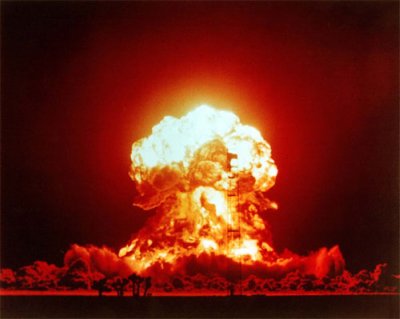 A new report from China says that President Nixon intervened to prevent an imminent Soviet nuclear attack on China when the two nations were at each others throats in 1969:
A new report from China says that President Nixon intervened to prevent an imminent Soviet nuclear attack on China when the two nations were at each others throats in 1969:
The Soviet Union was on the brink of launching a nuclear attack against China in 1969 and only backed down after the US told Moscow such a move would start World War Three, according to a Chinese historian.
The extraordinary assertion, made in a publication sanctioned by China’s ruling Communist Party, suggests that the world came perilously close to nuclear war just seven years after the Cuban missile crisis.
Liu Chenshan, the author of a series of articles that chronicle the five times China has faced a nuclear threat since 1949, wrote that the most serious threat came in 1969 at the height of a bitter border dispute between Moscow and Beijing that left more than one thousand people dead on both sides.
He said Soviet diplomats warned Washington of Moscow’s plans “to wipe out the Chinese threat and get rid of this modern adventurer,” with a nuclear strike, asking the US to remain neutral.
But, he says, Washington told Moscow the United States would not stand idly by but launch its own nuclear attack against the Soviet Union if it attacked China, loosing nuclear missiles at 130 Soviet cities. The threat worked, he added, and made Moscow think twice, while forcing the two countries to regulate their border dispute at the negotiating table.
He quotes Soviet ministers and diplomats at the time to bolster his claim.
On 15 October 1969, he quotes Soviet premier Alexei Kosygin as telling Soviet leader Leonid Brezhnev that Washington has drawn up “detailed plans” for a nuclear war against the USSR if it attacked China.
“[The United States] has clearly indicated that China’s interests are closely related to theirs and they have mapped out detailed plans for nuclear war against us,” Kosygin is said to have told Brezhnev.
That same day he says Anatoly Dobrynin, the Soviet ambassador to Washington, told Brezhnev something similar after consultations with US diplomats. “If China suffers a nuclear attack, they (the Americans) will deem it as the start of the third world war,” Dobrynin said. “The Americans have betrayed us.”
The historian claims that Washington saw the USSR as a greater threat than China and wanted a strong China to counter-balance Soviet power. Then US President Richard Nixon was also apparently fearful of the effect of a nuclear war on 250,000 US troops stationed in the Asia-Pacific region and still smarting from a Soviet refusal five years earlier to stage a joint attack on China’s nascent nuclear programme.
If this occurred, it would have happened during a time of near war between the Soviets and Chinese, including a quasi-war on the border that resulted in thousands of deaths. It also wouldn’t be the last time that the United States played a game of what some might call a game of nuclear chicken with the Soviets; Kissinger and Nixon allegedly played a similar game of brinkmanship during the Yom Kippur War.
It would be interesting to find out what the Soviet archives say about this moment in history, because, in retrospect, it may have been the smartest move Nixon ever made on the foreign policy front.

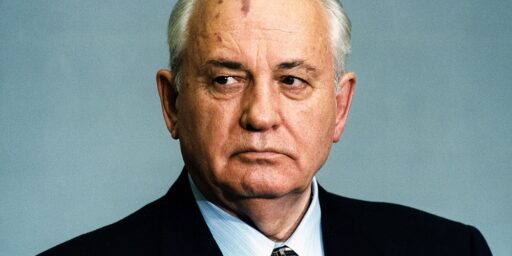
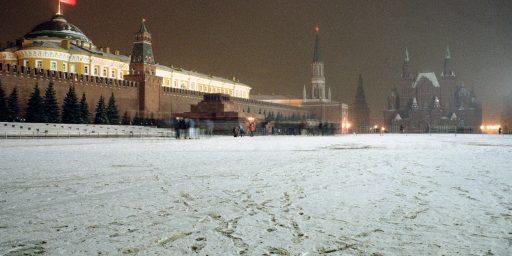
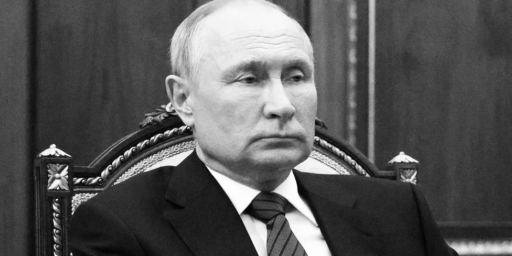
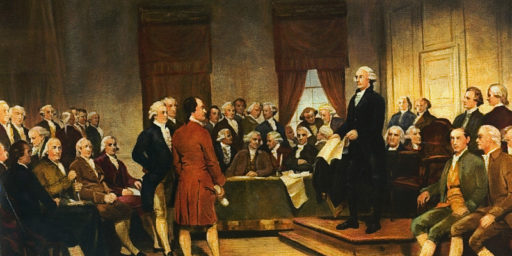
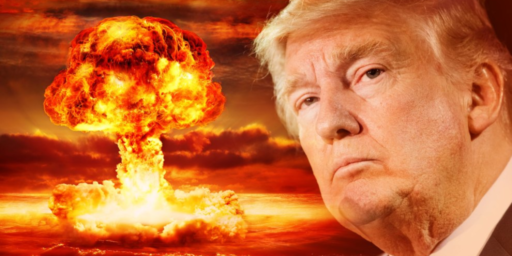
It does make sense with Nixon’s ’72 visit to China being some of the fruit from such an action.
Complicated guy, that Nixon.
Someone once remarked that Nixon would have been better off becoming Secretary of State instead of President.
This just bolsters the argument for dividing the executive’s foreign policy and domestic duties between separate offices. Nixon is the quintessential example of a brilliant foreign policy strategist (not saying I agree with everything he did) whose domestic policies left much to be desired.
nixon no dummy on foreign policy ..
he’s been lookin’ MIGHTY good the last 12 or so years !!
This is old news, actually. In the early 1960s, Kennedy had gone to the Soviets to discuss a preventive strike against Chinese facilities. The Soviets balked then. Then in 69 after the border fighting, the Soviets came to us and we balked.
In both cases, I think the evidence suggests this never went past the trial balloon phase.
–bf
As I’ve gotten older and my political passions have cooled, I’ve come to appreciate RN more and more. He still has his unseemly side, of course, but it’s more, much more, than outweighed by his positives, I think. From the wiki page:
It was his paranoia that drove Watergate and drove him from office. Over the years I’ve come to believe that his greatest political sin lay in actions that, in the end, deprived of his intelligence.
Sorry, that last should have read, “deprived us of his intelligence”.
He definitely had his positives. He was experienced and skilled in foreign affairs, and many of his domestic initiatives are of the kind that liberals such as myself can appreciate today.
To be honest, I think the country would have been better off if he had won the super-close Presidential election in 1960, rather than Kennedy. Most of the latter’s admiration comes from rhetoric and the fact that he died in his first term. Had he lived longer, most of his foul-ups before his death would have come back to haunt him.
He basically made two major mistakes. First, he made some seriously bad choices in associates, particularly the people who broke into Watergate. Second, when it became obvious that they had been caught, he acted to try and cover it up in a way that ended up causing him even more trouble.
Have there been any other notable instances in which it’s been shown that Nixon carried to the grave the secret of one of his own foreign policy successes while in office?
I don’t recall seeing any. Why wouldn’t Nixon have told? He died in April 1994, by which time the Cold War was over. By most reports, after he resigned in 1974, he was assiduous in carefully cultivating his own reputation, in particular working hard to be remembered as a “foreign policy genius” — writing several books, giving talks to selected small groups. I also think it’s a reputation he genuinely deserved, but my point is that it’s hard to imagine him resisting the impulse to tell this story himself, at a time when it still would have been headline news and sold lots and lots of books had he written about it.
I suspect that a minimum, some of the purported details of this report might have been exaggerated.
That is a fair point
Have there been any other notable instances in which it’s been shown that Nixon carried to the grave the secret of one of his own foreign policy successes while in office?
Beldar wins the thread.
Nixon was a remarkably intelligent & talented man. Its tragic that he was never able to come to grips with the character flaws that brought him down and did so much damage in the process.